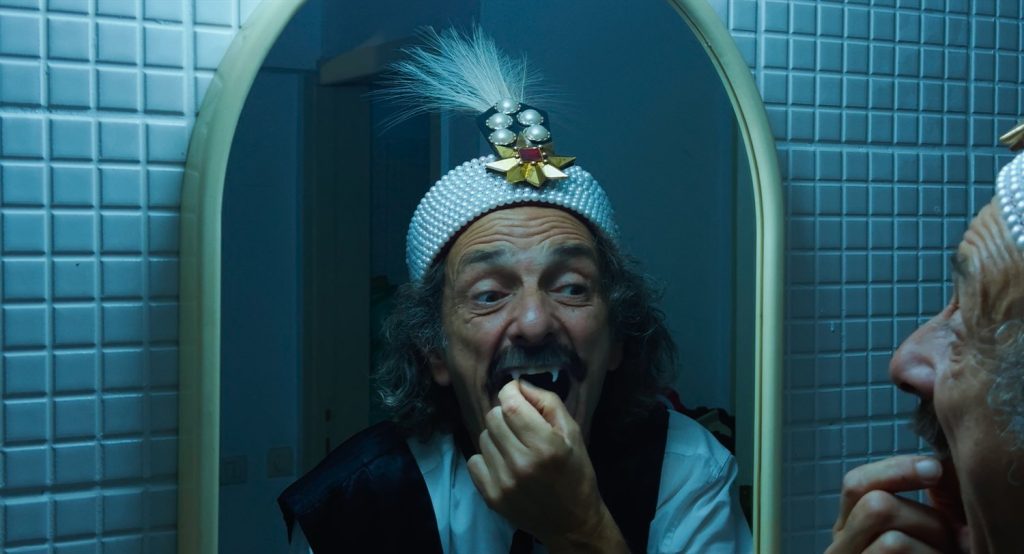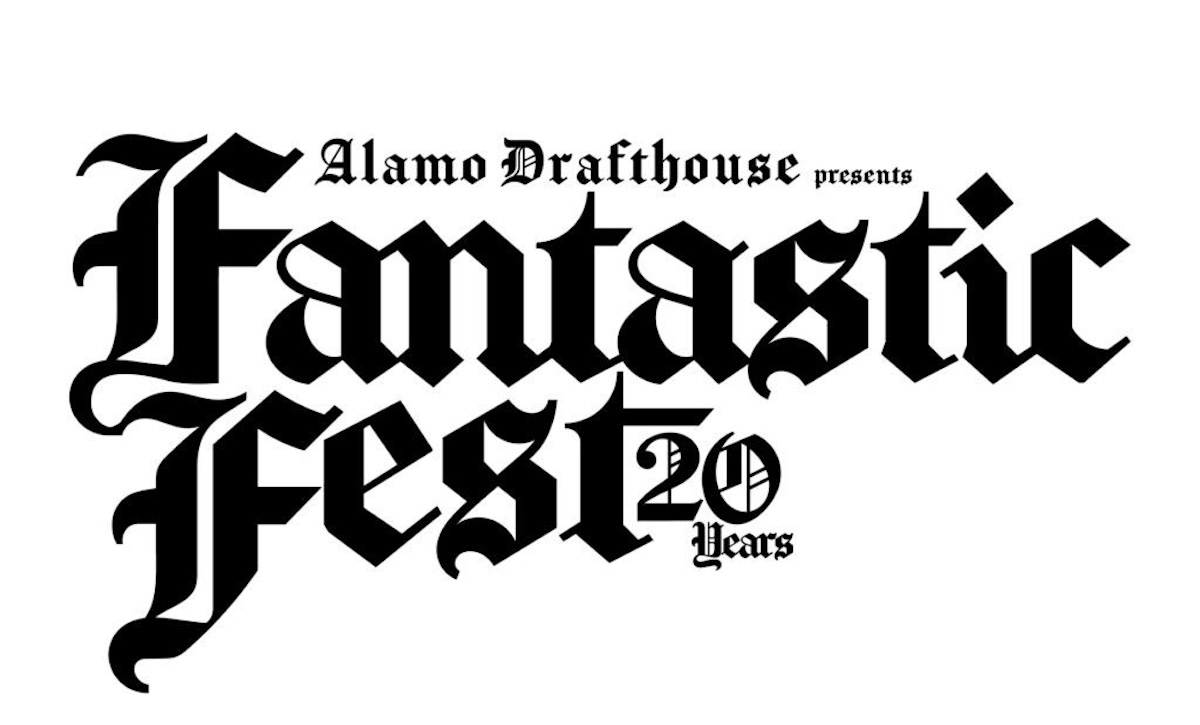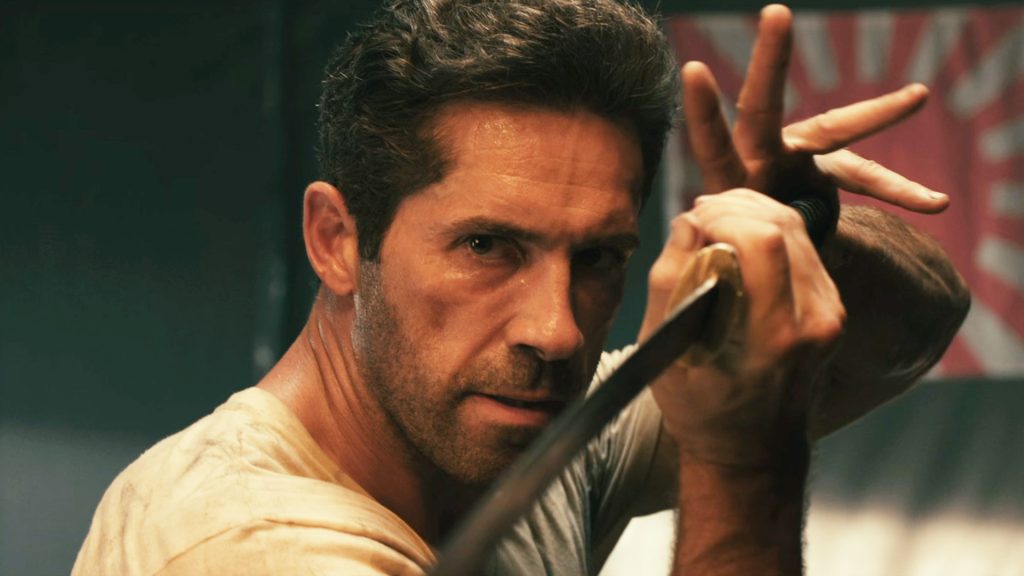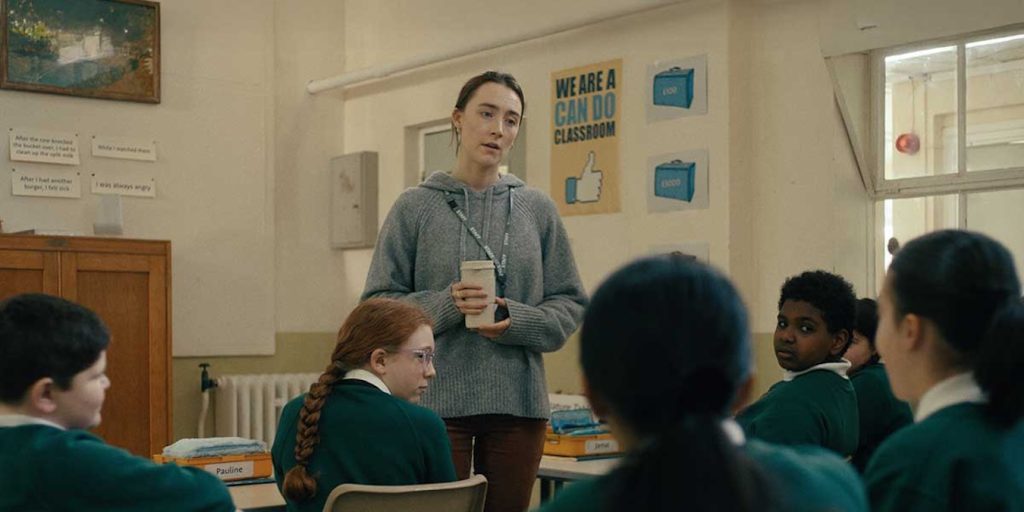Not many characters are having a good time at Fantastic Fest, the genre film festival held every September in Austin, Texas. Some folks suffer an intense curse, one that is transmitted via social media, while others are literally transformed into a donkey. If the vibes are bad in the features themselves, then at least the feeling outside the theaters is more congenial and welcoming. Maybe attendees are friendly because so much of what they watch at the festival is intense, or disturbing. This kind of genre filmmaking is about acknowledging pain, not escaping from it, so the sense of community is how the crowd copes through it.
In writer and director Eugène Green’s The Tree of Knowledge, a social satire that combines dark comedy with magic realism, Gaspar (Rui Pedro Silva), a young man from Portugal, is recruited by a sorcerer named The Ogre (Diogo Dória) in order to torture tourists, turning them into animals, before they are killed. Gaspar plays along, except he grows fond of two animals, who he protects and eventually rescues. All this bizarre storytelling is meant as a critique of how outsiders engage with Portugal; the tourists rob Lisbon of all its charm, wandering around without really learning about the city, except to post sometimes on social media. Maybe you have listened to the terrific podcast Peak Travel from NPR, one that explores the dangers of travel destinations getting too popular? The Tree of Knowledge is like that, except with a touch more madness and anger.
Radu Jude’s Dracula pairs nicely with Green’s film, insofar that its characters are furious that a major part of their nationality has become a sick joke. Jude, who directed comedies like Bad Luck Banging or Loony Porn and Do Not Expect Too Much from the End of the World, is not known for his subtlety, and here he tackles nothing less than arguably the most famous Romanian in the country’s history. Thanks to Bram Stoker’s novel, the mountains of Transylvania have become a destination where travelers indulge in their morbid curiosity about the vampire. This Dracula is not a horror film in any traditional sense, and yet it is for true sickos only: Jude conflates the encroaching ubiquity of Artificial Intelligence with the notion of the vampire, and there are some AI shots that are equal parts strange and obscene. Jude literally thinks that AI is evil, a curse on the culture, and his iterative approach to telling the Dracula story shows the kind of harm it has on our psyche. Dracula is a warning, an attempt to reckon with the dearth of creativity that comes when artists rely on prompts, rather their own imaginations. Between the depiction of AI and more dick jokes than you can count, Romanians finally have a statement about what their folk hero means to them, rather than letting themselves be defined by one uninspired vampire movie after another.

As with previous Fantastic Fests, writers and directors seek to explore topics that are mostly forbidden in polite conversation. Two films explore the pain and anxiety of motherhood, for example, and while they could not be more different, they find meaning by following stories to their logical extremes. A Woman Called Mother is a personal film for its writer and director Randolph Zaini, who dedicated it to his own mom. It follows Yanti (Artika Sari Devi), a mother who takes her children Vira (Aurora Ribero) and Dino (Ali Fikry) to the countryside in Indonesia. Left alone and without many distractions, the isolation starts to get to everyone, to the point where Yanti is possessed by an evil spirit. The nature of this possession, and what it does to the family, goes into truly disturbing territory because the emotions behind them are genuine. What obligations does a mother have, even when she resents and hates her children? How much must children endure before they fight back? Zaini finds his answers, and along the way, provides a showcase for Artika Sira Devi, who is a well-known actress in her home country but has not appeared in a film for several years. A Woman Called Mother should revitalize her career because she lets herself be frightening and vulnerable, the kind of performance you might expect in a more straightforward drama, rather than the scariest movie at a festival filled with horror.
In a different kind of knockout performance, Rose Byrne is terrific in If I Had Legs I’d Kick You, an anxiety nightmare of a thriller from writer and director Mary Bronstein. Byrne plays Linda, a therapist who can barely take care of her daughter, who suffers from a mysterious illness. Crucially, Bronstein’s camera never looks at Linda’s girl – sometimes we hear her protests and cries – and instead stays on Byrne’s face, with much of the film unfolding in a tight closeup. The effect is a bit like Uncut Gems, except Linda is not a gambling degenerate, just a woman at the end of her rope. She gets no support from her husband (Christian Slater) or her therapist (a gloriously deadpan Conan O’Brien), and yet they have no problem judging her when she has no choice but to make extreme, dangerous choices for her frayed sanity. Sometimes Bronstein looks to the sky, opting for kaleidoscopic abstract imagery, a brief relief from the on-the-ground realities Linda endures as her entire world comes apart. By the time we see the girl, in a moment of real maternal tenderness, it comes as a relief because, somehow, Linda finds her way to love again. It is a harrowing journey, and many parents will recognize themselves in Byrne because she stubbornly does not apologize for her character’s madness.
If the best features at Fantastic Fest are about extremes, the weaker ones are downright timid. That is the problem with Haunted Heist, a horror comedy that is the feature debut of Lil Rel Howery, who also stars as one of four friends who reunite for a long night in a cursed Airbnb, one where ghosts delight in messing with the unfortunate souls who are stuck inside. This haunting is sillier than it is scary, and while there is nothing original in Howery’s premise, at least he finds chemistry with his fellow actors Tiffany Hadish, Andrew Bachelor, and Karlous Miller. They are believable as friends, just not as characters in a horror comedy, to the point where (as Gene Siskel used to say) it would be more fun to watch a documentary about these actors instead of the story where they appear. In fact, the highlight of Haunted Heist came when Hadish, perhaps sensing she lost her audience, made amends by performing a karaoke version of Tina Turner’s “Private Dancer” after her film screened. She had the crowd at the Alamo Drafthouse in the palm of her hand, enough to make folks forget why she was in Austin in the first place.
That kind of joy and spontaneity is what makes me keep coming back to Fantastic Fest. Sure, what the programmers select can vary in quality, to the point where it can be difficult to keep track of everything you watch. But everyone at the festival, whether they’re in the industry or a badge holder with a large Letterboxd following, likes to push themselves to extremes. Sometimes that means sitting with an uncomfortable emotion, knowing that pain and discomfort is possible because the festival community also makes space for catharsis and release.



